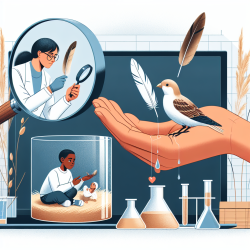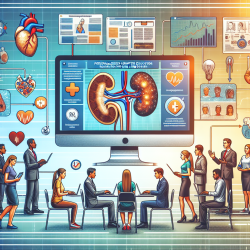Harnessing Wastewater-Based Epidemiology for Better Outcomes in Speech-Language Pathology
As a speech-language pathologist deeply committed to data-driven decisions, the insights from the recent research on wastewater-based epidemiology (WBE) present an exciting opportunity to enhance our practice. The study titled Opportunities and limits of wastewater-based epidemiology for tracking global health and attainment of UN sustainable development goals provides a comprehensive look at how WBE can be a powerful tool in monitoring global health and achieving sustainable development goals (SDGs).
Understanding Wastewater-Based Epidemiology
Wastewater-based epidemiology involves analyzing sewage to gather information about the health and behavior of populations. During the COVID-19 pandemic, WBE emerged as a crucial tool for tracking the spread of the virus. This method is not only cost-effective but also utilizes existing infrastructure, making it an attractive option for monitoring public health on a large scale.
Implications for Speech-Language Pathologists
While WBE might seem distant from the realm of speech-language pathology, the implications are profound. Understanding the health trends and potential risks within a community can inform our approach to therapy, particularly for children. Here’s how:
- Data-Driven Insights: WBE provides real-time data on community health, which can be used to tailor interventions that address specific health challenges faced by children.
- Identifying At-Risk Populations: By understanding the broader health landscape, practitioners can identify children who may be at higher risk for speech and language disorders due to environmental factors.
- Collaborative Opportunities: Engaging with public health data can foster collaboration with other healthcare professionals, leading to comprehensive care strategies for children.
Encouraging Further Research
The study highlights the potential of WBE to track progress in achieving nine out of the 17 UN SDGs, including goals related to health, sanitation, and sustainable cities. For practitioners, this is an invitation to delve deeper into how these broader health trends impact our field and explore innovative ways to integrate this knowledge into practice.
Conclusion
Wastewater-based epidemiology offers a unique vantage point for understanding and improving public health. For speech-language pathologists, leveraging this data can lead to more informed, effective interventions that create better outcomes for children. Embracing this approach aligns with our commitment to data-driven practice and our passion for enhancing children's lives.
To read the original research paper, please follow this link: Opportunities and limits of wastewater-based epidemiology for tracking global health and attainment of UN sustainable development goals.










